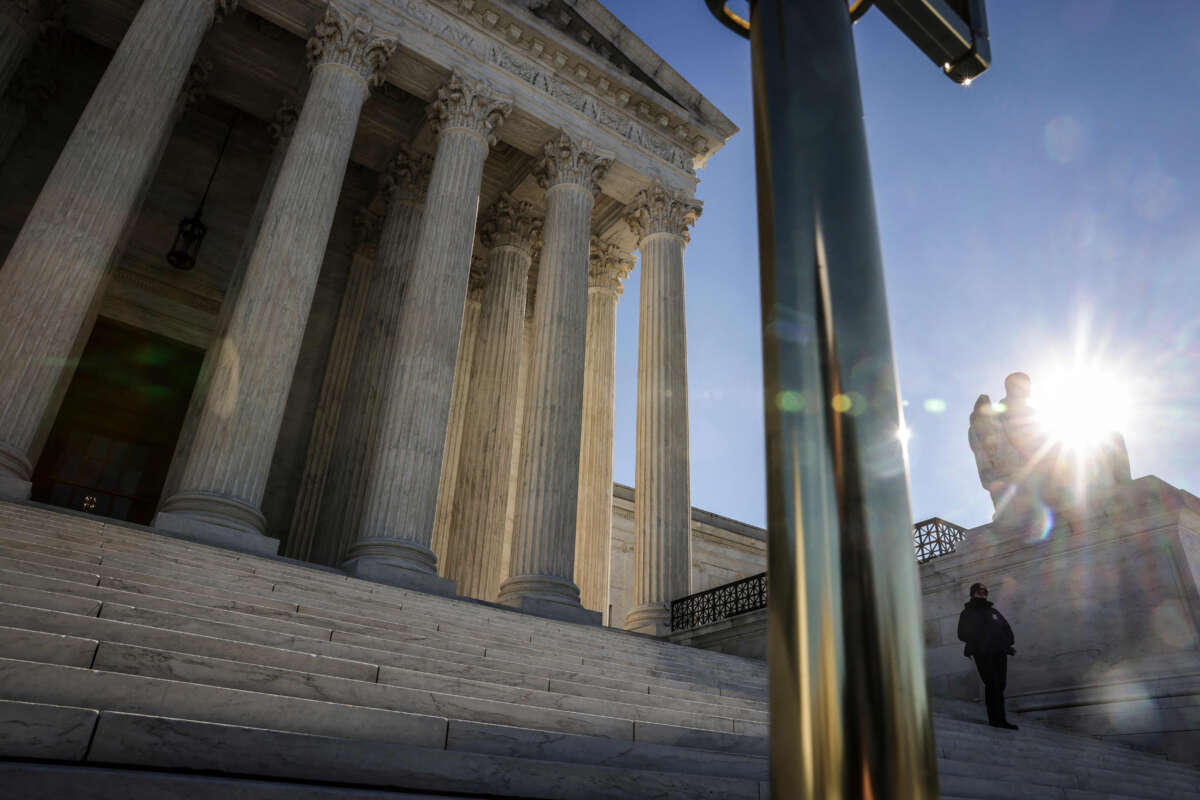Support justice-driven, accurate and transparent news — make a quick donation to Truthout today!
The U.S. Supreme Court heard arguments this week in a case that has the potential to upend the ability of unions to strike without facing retaliatory lawsuits from corporations.
The case, Glacier Northwest, Inc. v. Int’l Brotherhood of Teamsters, involves a concrete company that had previously attempted to sue a union over an action taken by its workers during a strike in 2017. Cement truck drivers had abandoned their trucks at the start of the strike, some of which had cement mixing in them, resulting in a financial loss for the company, which had to dump the concrete to avoid damaging the vehicles.
Federal standards stipulate that workers are not responsible for inadvertent financial losses that result from a strike. But Glacier Northwest sought to sue the union in state court, alleging that the action resulted in property damage that workers should have to pay for. The Washington state Supreme Court ruled that Glacier Northwest couldn’t sue in state court, however, saying the matter had to be resolved by the National Labor Relations Board (NLRB).
Glacier Northwest appealed that ruling to the federal Supreme Court, which heard arguments on Tuesday over whether the company can sue the union.
It’s currently unclear how the Supreme Court will rule — aside from Chief Justice John Roberts, conservative bloc justices, which comprise six of the nine seats on the Court, were relatively quiet during oral presentations from both sides. Still, recent anti-worker rulings from the Court indicate that justices will likely favor Glacier Northwest, allowing them to sue the union in Washington state courts.
Liberal bloc justices have suggested that they are sympathetic to the argument that the NLRB should hear the case first, noting during oral arguments that changing the jurisdiction where companies can challenge unions from the NLRB to state courts endangers the rights of workers and unions, including the right to strike.
Lawyers for the union argued that workers’ actions didn’t warrant a lawsuit at the state court level. “Every day it deals with leftover concrete,” the union’s lawyer Darin Dalmat said of the company.
The union has also warned that, should the Court rule in favor of Glacier Northwest, it could expand the definition of “unprotected conduct” during strikes — if not in name then in practice — by allowing companies to sue countless times over the financial losses that may result from strikes. Workers may be less inclined to strike if they believe that they may face lawsuits as a result of doing so.
Rakim Brooks, president of the progressive group Alliance for Justice, tweeted in support of workers and their union.
“I cant believe I have to say this: Workers have a right to strike!” Brooks wrote. “Freedom of assembly, and thus collective action, is guaranteed by the 1st amendment and protected by federal law. We can’t let right wing ideology strip us of our basic rights.”
Media that fights fascism
Truthout is funded almost entirely by readers — that’s why we can speak truth to power and cut against the mainstream narrative. But independent journalists at Truthout face mounting political repression under Trump.
We rely on your support to survive McCarthyist censorship. Please make a tax-deductible one-time or monthly donation.
